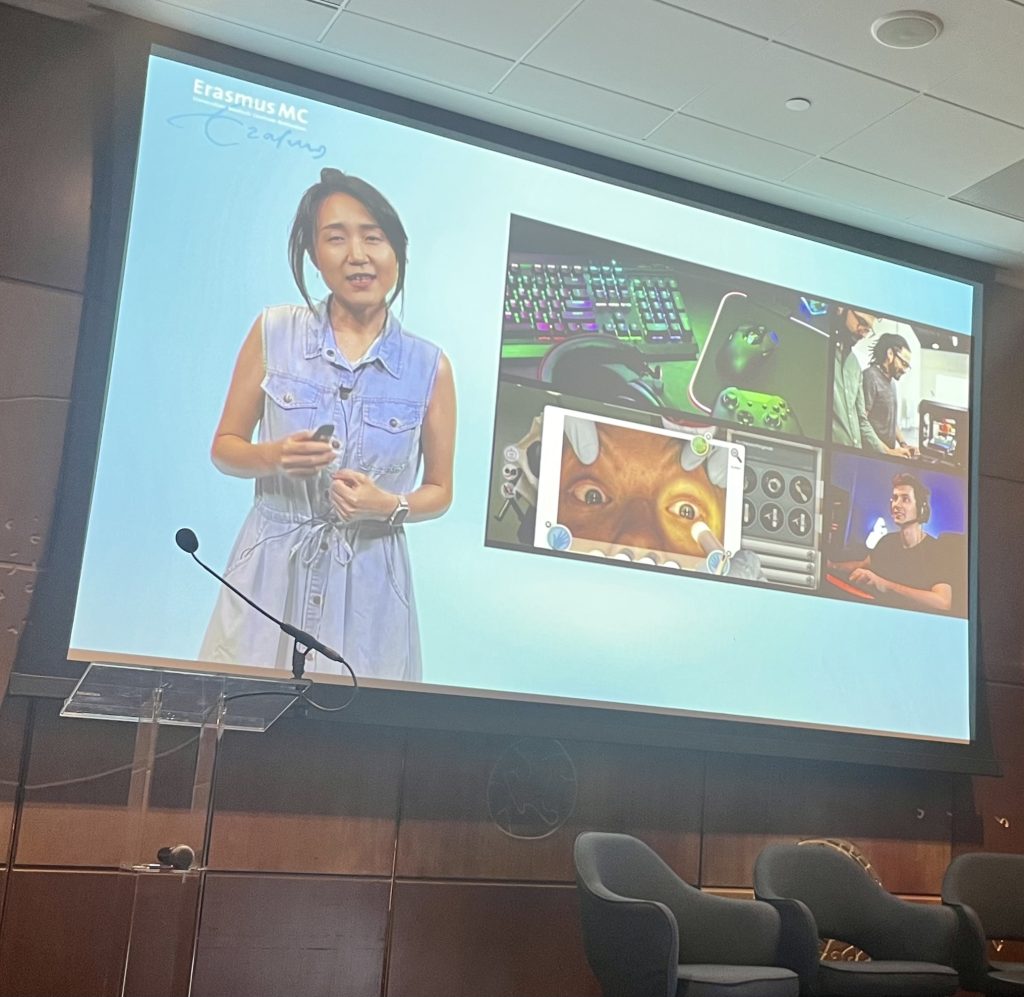Research: How prior knowledge affects problem-solving performance in a medical simulation game: Using game-logs and eye-tracking.
NWO-funded research “How prior knowledge affects problem-solving performance in a medical simulation game: Using game-logs and eye-tracking,” using our serious game AbcdeSIM. Research by: Joy Yeonjoo Lee, Jeroen Donkers, Halszka Jarodzka, and Jeroen J.G. van Merriënboer.
Highlights:
• Developing theory-based indicators of expertise leads to sound validation.
• Experts show higher systematicity in their task approach than novices.
• Experts attend critical areas more and intervention areas less often than novices.
• Self-reported cognitive load negatively correlates with eye-gaze transition rate.
• Experts perform faster than novices, with higher accuracy and lower cognitive load.
Abstract:
Computer-based simulation games provide an environment to train complex problem-solving skills. Yet, it is largely unknown how the in-game performance of learners varies with different levels of prior knowledge. Based on theories of complex-skill acquisition (e.g., 4C/ID), we derive four performance aspects that prior knowledge may affect: (1) systematicity in approach, (2) accuracy in visual attention and motor reactions, (3) speed in performance, and (4) cognitive load. This study aims to empirically test whether prior knowledge affects these four aspects of performance in a medical simulation game for resuscitation skills training. Participants were 24 medical professionals (experts, with high prior knowledge) and 22 medical students (novices, with low prior knowledge). After pre-training, they all played one scenario, during which game-logs and eye-movements were collected. A cognitive-load questionnaire ensued. During game play, experts demonstrated a more systematic approach, higher accuracy in visual selection and motor reaction, and a higher performance speed than novices. Their reported levels of cognitive load were lower. These results indicate that prior knowledge has a substantial impact on performance in simulation games, opening up the possibility of using our measures for performance assessment.
Full article can be read and downloaded here

